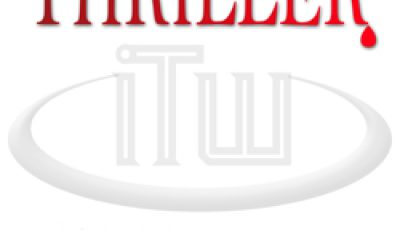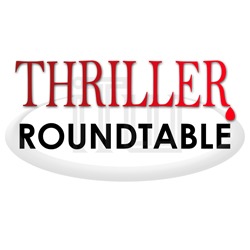

February 7-13: “Which authors inspire you?”
 Join ITW members Amy Robertson, Weston Ochse, Mike Sirota, Kelli Stanley, Michael Haskins, Reece Hirsch, Kate White, Jim Duncan, Weyman Jones, and Tracy March as they talk about their literary heroes. And don’t forget — everyone is welcome to post to the discussion!
Join ITW members Amy Robertson, Weston Ochse, Mike Sirota, Kelli Stanley, Michael Haskins, Reece Hirsch, Kate White, Jim Duncan, Weyman Jones, and Tracy March as they talk about their literary heroes. And don’t forget — everyone is welcome to post to the discussion!
Amy Dawson Robertson writes the Rennie Vogel Intrigue series, thrillers featuring the self-reliant operative Rennie Vogel in action-packed stories drawn on current events. Amy is a native Virginian and graduated from St. John’s College in Annapolis. She lives in the Washington DC area and her writing interests include genre fiction, short stories and graphic novels.
Weston Ochse spent 20 years in military intelligence and special operations and has worked extensively with every U.S. intelligence and law enforcement agency. In addition to his novels, his work has appeared in comic books, magazines and Writer’s Digest How-To books. He is the winner of the Bram Stoker Award for Best First Novel, has been nominated for the Pushcart Prize, and has won an international screenwriting award. He lives in Southern Arizona.
Mike Sirota is the author of nineteen previously published novels, including Demon Shadows and The Well (from Bantam Books) and the Bicycling Through Space and Time trilogy from Ace/Berkley. Formerly an award-winning journalist, he assists aspiring and published writers as an independent editor and writing coach. Mike lives in Oceanside, California with his wife, Jacqueline.
Kelli Stanley is an award-winning author of crime fiction. She writes two critically-acclaimed crime fiction series, one set in 1940 San Francisco (featuring hardboiled female PI, Miranda Corbie), the other in first century Roman Britain (the “Roman noir” Arcturus series). Her newest novel THE CURSE-MAKER releases on February 1st. Her novels include CITY OF DRAGONS, NOX DORMIENDA, and CITY OF SECRETS (September, 2011). “Children’s Day”, a prequel to CITY OF DRAGONS, was published in the International Thriller Writers anthology FIRST THRILLS: HIGH OCTANE STORIES FROM THE HOTTEST THRILLER AUTHORS. You can learn more about Kelli and the worlds she creates athttp://www.kellistanley.com, friend her on Facebook or follow her on Twitter.
Michael Haskins is the writer of the Mick Murphy Key West Mystery series. CHASIN’ THE WIND the first in the series, was published in March 2008 and the second book, FREE RANGE INSTITUTION, will be available in February 2011. He has finished the third book in the series, CAR WASH BLUES. He lives with his wife, family, and sailboat in Key West, Florida.
Reece Hirsch’s debut legal thriller THE INSIDER was published by Berkley Books in May 2010. Reece is a partner in the San Francisco office of Morgan, Lewis & Bockius specializing in privacy, security and healthcare law. He is also a member of the board of directors of 826 National, a San Francisco-based non-profit organization that conducts writing programs for young people in underserved communities.
Kate White is the veteran editor-in-chief of Cosmopolitan, and also a critically acclaimed author of both fiction and nonfiction books, including9 Secrets of Women Who Get Everything They Want, Lethally Blond, andHush. White currently resides in Manhattan with her husband and two children. Her New York Times bestselling thriller Hush is just out in paperback.
J.N. Duncan, living and working away in the state of Ohio, is a writer of dark, urban-fantasy-suspense. His first novel, published by Kensington, will be out in April, 2011.
Critics describe Weyman Jones‘ latest novel as “a great thriller filled with action and misdirection.” Author of three previous thrillers, he has also written written award-winning historical novels for children and a non-fiction book on computers that was republished in several languages.
Tracy March writes about ethical dilemmas in unethical times. As a former pharmaceutical sales executive, Tracy draws inspiration from her experiences and encounters in the medical field and her love/hate relationship with politics. Look for GIRL THREE, Tracy’s debut thriller set in Washington, D.C., in June 2011. Tracy lives in Yorktown, Virginia, with her husband who works for NASA. They recently experienced two years living in D.C, where they discovered enough drama to inspire a lifetime of stories.
- LAST GIRL MISSING with K.L. Murphy - July 25, 2024
- CHILD OF DUST with Yigal Zur - July 25, 2024
- THE RAVENWOOD CONSPIRACY with Michael Siverling - July 19, 2024
